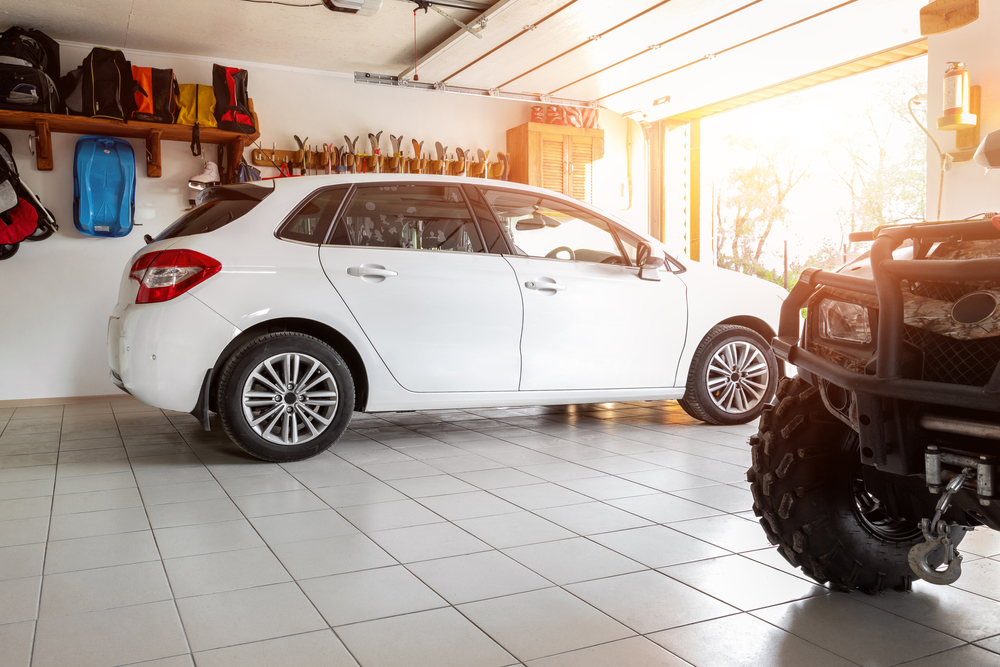Get Started
Talk to our team to start saving 800.260.5355

If you’ve leased a car, love it and want to buy it, you’ll likely hear terms like lease payoff and buyout from your leasing company. What’s the difference between lease payoff and lease buyout? While both refer to how much you must pay to buy your leased car, each term applies to a different scenario.
The lease payoff is what you pay to end your lease early and buy the car. In contrast, the lease buyout is the total amount you pay to buy the leased car after your contract ends.
A lease buyout is an option you have at the end of your lease to purchase the vehicle from the leasing company. Various fees and charges listed in the leasing agreement determine the cost of buying out a lease. The biggest of these is usually the residual value, which is often non-negotiable, fixed and based on the car’s estimated value at the end of the lease.
If the total lease buyout amount is higher than the car’s current market value, it means you have negative equity. Buying a leased car with negative equity may lead to financial loss as you’ll be paying more than the car is worth.
On the other hand, if the car’s worth more than the total buyout amount, you have positive equity and can profit from buying and reselling it. You are more likely to have positive equity if you leased a car that holds value and depreciates slowly.
Car leasing companies (lessors) calculate total buyout amounts by adding up all the relevant fees and charges listed in the lease agreement. These fees typically include:
If you’ve exceeded mileage limits or the vehicle has excessive wear and tear, the lessor may charge penalties as part of the buyout process. There may also be penalties for unauthorized vehicle modifications or poor vehicle maintenance.
Buying out your leased car at the end of the contract is typically more cost-effective because you avoid paying an early termination fee and the remaining lease payments. These charges can add hundreds or thousands of dollars to your total buyout amount, depending on how many months are left on your lease.
You must pay the lease payoff amount if you’re buying the car to end your lease early. It consists of the remaining monthly payments left on your lease, which the lessor charges to recover the cost of ending the contract early. For example, if you have 12 months left, you must pay for those months to buy out the lease early.
Besides the remaining months on the lease, the lease payoff amount includes all the same charges as a lease buyout if you plan to keep the car. There may be an early termination fee, which is a penalty charged by the lessor if you end the lease prematurely.
While lease buyout fees typically don’t include an early termination fee and remaining monthly payments, lease payoffs do. That’s because with a lease payoff, you’re “paying off” what’s left on your contract, including the cost of ending it early.
To calculate your payoff amount, you must identify all the charges outlined in your lease agreement. These often include an early termination fee, some or all of the remaining payments left on your lease, and the vehicle’s residual value if you are keeping it. Other typical charges include a purchase option fee, sales tax and administrative fees. Add up all these charges to get your total payoff amount.
The further you are from the lease end date, the higher your lease payoff amount may be. This is most likely if the lessor asks you to pay all the remaining monthly payments in full.
A lease buyout is usually a simpler transaction at the end of the lease, involving payment of the residual value and some other charges to own the car. A lease payoff, on the other hand, is the total sum you must pay to terminate the lease early and buy the car. It’s typically more expensive than a lease buyout because you have more charges, such as the early termination fee and remaining monthly payments.
While you can pay off a lease at any time if the contract allows it, you are often better off waiting until closer to the lease’s end. The closer you are to the lease’s end date, the lower the payoff amount will be, since charges for the remaining monthly payments will be smaller.
A lease buyout can be a profitable move if you have positive equity and the car’s in good condition. However, settling payoff or buyout charges out of pocket is more expensive than most people can afford. Fortunately, you don’t have to drain your savings to complete a lease buyout. Instead, you could finance the whole transaction with an auto loan.
At RefiJet, we can connect you to lenders that offer lease buyout financing with competitive interest rates and favorable terms. Choose a lender with loan terms that fit your needs, and we’ll guide you through the process of securing the loan. Prequalify for lease buyout financing today!
Here are answers to some common questions about the difference between lease payoff and lease buyout:
A lease payoff is the payment you make to end your lease contract early. In contrast, a lease buyout happens at the end of your lease when you pay the residual value and any other fees to own the car.
Yes, the lease payoff amount provided by the leasing company typically includes sales tax. The exact sales tax amount varies by state, and lessors usually calculate it based on the vehicle’s residual value or the total buyout price.
If you’d like to own your leased car, it may make sense to wait until the end of your lease and use the lease buyout option. If you’d like to end your lease early and return the car, you may prefer a lease payoff.
Most leasing terms and fees are set in stone in your lease agreement. Review your lease agreement and reach out to your lessor about possible concessions on payoff fees.
The costs that typically make up the lease payoff include the remaining monthly lease payments and the residual value if you plan to keep the car. You’ll also have to pay an early termination fee, sales tax, and title and registration fees. Some lessors may charge additional inspection, purchase option and administrative fees.
Yes, lease equity can help you determine if a lease buyout makes financial sense. If your car’s market value is higher than the residual value (positive equity), you could buy out the lease and resell the car for a profit.

Before rolling over your car loan, understand the benefits and drawbacks. Discover your options on a negative equity loan.